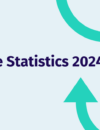As governments begin outlining plans for life after lockdown, we are all excited at the prospect of being reunited with our family and friends. Yet as the news reminds us every evening, for many, this opportunity is lost forever.
As of the most recent count, over 33,000 people in the UK have died due to COVID-19, while the US has suffered almost triple the number of fatalities. And the uncomfortable truth is that, on both sides of the Atlantic, BAME people are experiencing the most severe effects of Coronavirus at disproportionate rates.
Despite making up only 14 percent of the population of England and Wales, BAME people account for more than a third of all critical cases. The Office for National Statistics (ONS) found that black men were four times more likely to die from COVID-19 than their white counterparts. Of the 120 NHS workers who have died of Coronavirus, over two-thirds are from BAME backgrounds, even though BAME healthcare workers only make up 20 percent of the total NHS workforce. Meanwhile in the US, Black Americans – who make up 13 percent of the general population – account for 35 percent of all COVID related deaths.
These are shocking statistics, and it is important to understand the complex range of factors driving this disparity.
Frontline Workers
While millions of us have had the opportunity to work from home during lockdown, hundreds of thousands of people make up our essential workforce – ranging from doctors and nurses to warehouse workers and delivery drivers. These professions are overwhelmingly dominated by people from diverse backgrounds: BAME people make up almost 40 percent of all NHS nurses, for example. While employers have taken steps to protect workers against infection, personal protective equipment (PPE) is in short supply even for frontline healthcare staff, and many are forced to carry on without any kind of proper PPE.
Inequality
Even accounting for specific local demographics, studies by the Intensive Care National Audit & Research Centre (ICNARC) found that BAME people in the UK are disproportionately losing their lives to COVID-19. Economic disadvantage is a key factor. While we have all taken immense pride in our essential workers during this time, many of these positions have limited salary prospects or employee benefits. Minority communities are often forced to occupy these roles in greater numbers than their white counterparts, owing to limited career opportunities on account of longstanding institutional discrimination. Fearing the loss of income when they are already in a precarious position, they feel unable to carry out social distancing, only making them more susceptible to Coronavirus.
Immune Response
While a significant number of BAME people are coping with harsher socioeconomic circumstances, research has found that Black and South Asian people living in the UK are still more likely to succumb to Coronavirus, irrespective of class and income. Even when adjusting for deprivation and health, the ONS found that Black and Asian people are most at risk of dying from COVID-19. Various immunologists and researchers are currently working hard to understand this disparity. Many have highlighted the fact that these groups are three to four times as likely as white people to develop diabetes, a condition which can weaken the lungs and the immune system and leave people especially vulnerable. Others are looking into the impact of Vitamin D deficiency on immune response. Since Vitamin D is generated when sunlight touches our skin, researchers fear that a genetic predisposition toward Vitamin D deficiency, coupled with longer time spent indoors, is weakening the immune systems of BAME people at the most crucial time.
The most vital thing to understand is that no single one of these factors exists in a vacuum. The impacts of Coronavirus have been felt by everyone across the world, but it is clear that BAME people are feeling the impact in a much harsher way. It is important that we understand the social, political and economic forces that drive this impact, and the ways that we can fight for fairer conditions for all people in such difficult times.
Visit the GMCVO website for support and resources to help BAME communities affected by Coronavirus.





